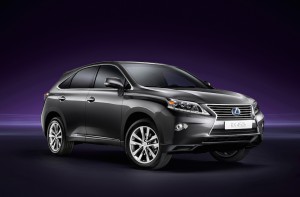
New vehicle buyers are craving bigger, better and more interactive infotainment systems; however, they have no patience for systems that don't work.
Car buyers may crave infotainment systems and voice-controlled navigation, but they’ve also become frustrated with technologies that don’t work as promised, according to the latest annual Vehicle Dependability Study, or VDS, from J.D. Power and Associates.
Technical glitches now far outweigh traditional mechanical issues such as balky transmissions, rust and wind noise when it comes to the problems that motorists reported after three years of ownership – and with more cars offering such digital technologies, it was a key reason why complaints actually rose last years, according to the 2017 Power VDS.
“The increase in technology-related problems has two sources,” Power Vice President Renee Stephens, who oversees U.S. automotive research. “Usability problems that customers reported during their first 90 days of ownership are still bothering them three years later in ever-higher numbers. At the same time, the penetration of these features has increased year over year.”
According to the latest dependability study – which focused on vehicles from the 2014 model-year – the industry averaged 156 “problems” per 100 vehicles, or 156 PP100 in Power-speak. That was up from 152 problems the year before.
Problems with digital technology have been rising for more than a decade, reflecting the rapid addition of systems like hands-free Bluetooth calling, in-car navigation and infotainment systems. Such technologies are also the source of the majority of complaints in another widely followed Power report, the Initial Quality Study, which asks motorists about their new vehicles after 90 days of ownership.
(The 1% mostly likely drives the same vehicle everyone else does. Click Here to find out what it is.)
The VDS is considered by some a more telling indicator of quality, however, as it looks at vehicles after three years of ownership. By then, hidden problems are likely to surface. At the same time, owners are expected to become more familiar with how technologies, such as voice controls, work.

Lexus ranked at the top of the J.D. Power Vehicle Dependability Survey thanks to vehicles like the RX450h.
While digital technologies are the source of a majority of complaints, some mechanical problems continue to creep up. The new VDS finds that battery failures increased a whopping 44% compared to the prior year. It’s unclear if that is linked to the use of new technologies that can draw more power.
According to the latest dependability study – which is now in its 28th year – Lexus and Porsche were tied as the top-ranked brands, with an average 110 problems per 100 vehicles. Luxury marques routinely dominate the various quality charts, but mainstream brands have been gaining in quality and reliability in recent years. Toyota was third in the latest VDS, followed by Buick and Mercedes-Benz. In all, five mainstream marques landed among the top 10.
“The good news is consumers don’t have to spend a lot of money to get a very dependable vehicle,” said David Sargent, Power’s vice president of global automotive operations.
At the other extreme, Fiat ranked at the bottom of the 31 brands covered by the study, with an average 298 PP100. Fiat’s Jeep brand was ranked 30th, with 209 problems, and Infiniti was third from bottom with 203.
Sargent warned that the problems many consumers are reporting with their high-tech models could actually get worse in the coming years, as more new features are added. None of the 2014 models included in the study, for example, featured the new Apple CarPlay and Android Auto systems, for example.
(Click Here to see more about the $3 billion winter costs U.S. drivers each year.)
Manufacturers have reason to try to resolve their high-tech glitches, Sargent emphasized, as well as more traditional, mechanical problems. “We find buyers are increasingly avoiding models with poor reputations for dependability, so manufacturers can’t afford to let quality slip,” he explained.
Here’s the list of all 31 brands covered by the 2017 J.D. Power Vehicle Dependability Study, followed by a round-up of the top models by category:
1. (tie) Lexus 110
2. (tie) Porsche 110
3. Toyota 123
4. Buick 126
5. Mercedes-Benz 131
6. Hyundai 133
7. BMW 139
8. Chevrolet 142
9. Honda 143
10. Jaguar 144
11. Kia 148
12. (tie) Lincoln 150
13. (tie) Mini 150
14. GMC 151
15. Cadillac 152
16. Audi 153
17. Volvo 154
AVERAGE 156
18. Chrysler 159
19. (tie) Subaru 164
20. (tie) Volkswagen 164
21. Mazda 166
22. Acura 167
23. Nissan 170
24. Land Rover 178
25. Mitsubishi 182
26. (tie) Ford 183
27. (tie) Ram 183
28. Dodge 187
29. Infiniti 203
30. Jeep 209
31. Fiat 298
The most reliable models by product segment are:
Small car
Chevrolet Sonic
Nissan Versa
Compact car
Toyota Prius
Buick Verano (tie)
Honda Civic (tie)
Compact Premium Car
Lexus ES
Mercedes-Benz C-Class
Acura ILX
Midsize Car
Toyota Camry
Chevrolet Malibu
Hyundai Sonata
Midsize Sporty Car
Chevrolet Camaro
Ford Mustang
Midsize Premium Car
Lexus GS
Mercedes-Benz E-Class
Audi A7
Large Car
Toyota Avalon
Buick LaCrosse
Kia Cadenza
Small SUV
Volkswagen Tiguan
Buick Encore
Hyundai Tucson
Compact MPV
Toyuta Prius V
Kia Soul
Compact SUV
Toyota FJ Cruiser
Chevrolet Equinox
GMC Terrain
Compact Premium SUV
Mercedes-Benz GLK-Class
Acura RDX
Volvo XC60
Midsize Pickup
Honda Ridgeline
Nissan Frontier
Midsize SUV
Toyota Venza
Ford Edge (tie)
Honda Pilot (tie)
Midsize Premium SUV
Lexus RX
Lexus GX
Porsche Cayenne
Minivan
Toyota Sienna
Chrysler Town & Country
Dodge Grand Caravan
Large SUV
Chevrolet Tahoe
GMC Yukon
Large Light Duty Pickup
Ford F-150
Toyota Tundra
Chevrolet Silverado (tie)
Ram 1500 (tie)
Large Heavy Duty Pickup
Chevrolet Silverado HD
GMC Sierra HD
Ford Super Duty
(Congestion costing drivers $1,200 annually. Click Here for the story.)
